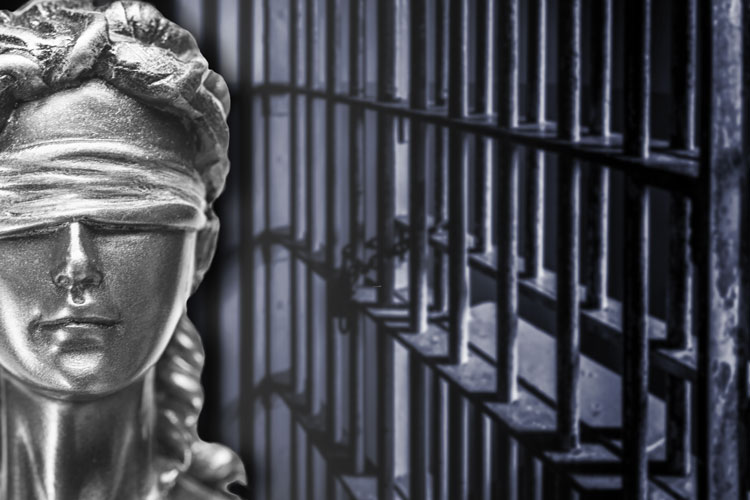ABA-supported criminal justice efforts considered by Congress

Photo illustration by Sara Wadford; Shutterstock.
Hoping to regain momentum for criminal justice reform, the ABA is supporting several pieces of legislation currently before Congress. These include reauthorizations of both the Juvenile Justice and Delinquency Prevention Act and the Second Chance Act, as well as bills seeking changes to sentencing and corrections practices.
The most comprehensive of these is S. 1917, the Sentencing Reform and Corrections Act of 2017, a bipartisan bill introduced by Senate Judiciary Committee Chairman Charles E. Grassley, R-Iowa, Sen. Richard Durbin, D-Ill., and 10 other co-sponsors.
The legislation “takes a number of important steps forward to reduce reliance on mandatory minimum sentences for low-level drug offenders and to improve fairness and the achievement of justice in the federal system,” the ABA told Congress. The bill’s provisions would enhance recidivism-reducing prison programs; expand “compassionate release” for elderly, terminally ill prisoners; ban solitary confinement for juveniles; and permit juveniles to obtain expungement of certain criminal records. A similar measure supported by the ABA stalled during the 114th Congress.
Another important component of the bill is the creation of a National Criminal Justice Commission, an idea supported by the ABA since it was introduced in 2009. Under this proposal, the 14 members of a bipartisan commission—nationally recognized experts in various fields—would undertake a comprehensive, 18-month review of all areas of the criminal justice system and develop recommendations for ensuring justice at every step. S. 573, a bipartisan stand-alone bill to create the commission, also is pending.
While there has been no action on comprehensive criminal justice legislation this Congress, the House and Senate passed separate bills—H.R. 1809 and S. 860—last fall to reauthorize the Juvenile Justice and Delinquency Prevention Act and reflect the changes in the juvenile justice field since the act was last extended more than 13 years ago.
Urging House and Senate leaders to quickly resolve the differences between the two bills, ABA President Hilarie Bass wrote that final action “is critical to protecting juveniles in the justice system and to ensuring federal funding priority for juvenile justice programs that researchers have shown improve outcomes for these young people.”
Bass added that the ABA specifically supports extending protections that limit youth contact with adult offenders in correctional facilities and phasing out use of the valid court order exception. The VCO exception, introduced to the juvenile justice act in 1980, has resulted in youths being jailed or securely confined for “status offenses” such as truancy or running away that would not be crimes if committed by adults.
SUPPORT FOR A SECOND CHANCE
The ABA president also expressed support during this Congress for H.R. 2899, a bipartisan bill introduced by Rep. Jim Sensenbrenner, R-Wis., to reauthorize the Second Chance Act, which provides federal grants for prisoner re-entry and recidivism-reduction programs.
Since the Second Chance Act was signed into law in 2008, more than 700 grants awarded to government agencies and nonprofit associations in 49 states and the District of Columbia have provided employment training, education, housing and other support for over 137,000 former inmates transitioning back to community life after completing their sentences.
“By providing the resources needed to coordinate re-entry services and policies at the state and local levels, reauthorization of the Second Chance Act will ensure that the tax dollars spent on corrections do not simply fuel a revolving door in and out of prison,” Bass wrote to the House Judiciary Committee.
The association also is keeping a close eye on S. 1593 and H.R. 1437, bills to discourage courts from using payment of money bail as a condition for pretrial release in criminal cases.
Detaining defendants for not paying bail “interferes with their ability to defend themselves and, in many instances, deprives their families of support,” wrote ABA Governmental Affairs Director Thomas M. Susman in a letter to the judiciary committees in the House and Senate.
This report is written by the ABA Governmental Affairs Office and discusses advocacy efforts relating to issues being addressed by Congress and the executive branch of the federal government. Rhonda McMillion is editor of ABA Washington Letter, a Governmental Affairs Office publication. This article was published in the February 2018 issue of the



